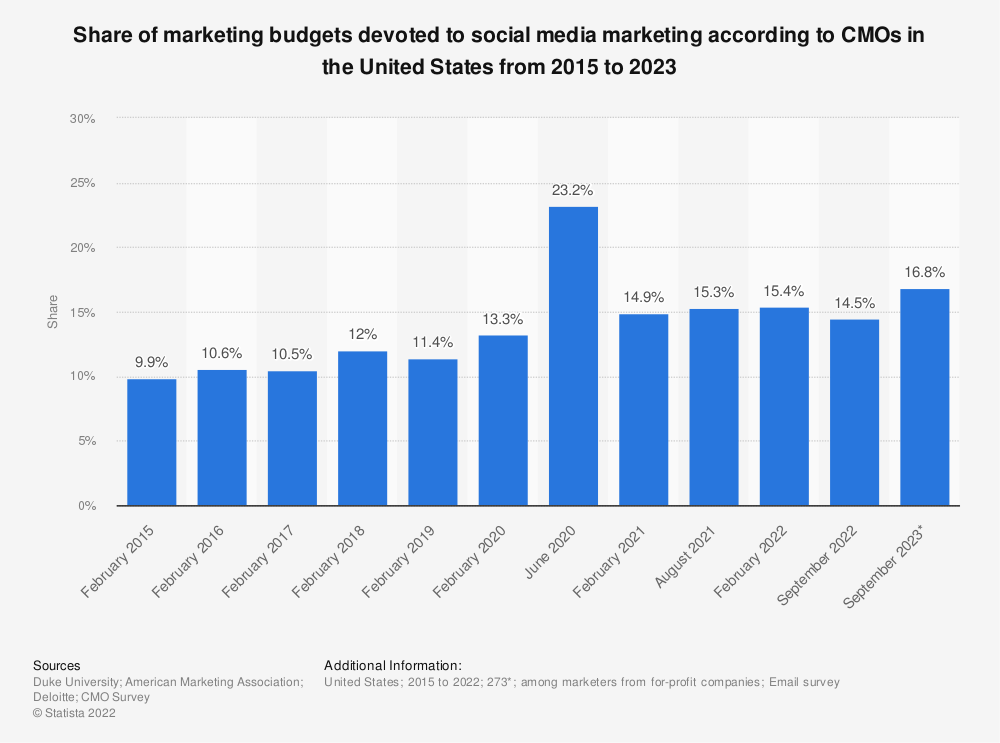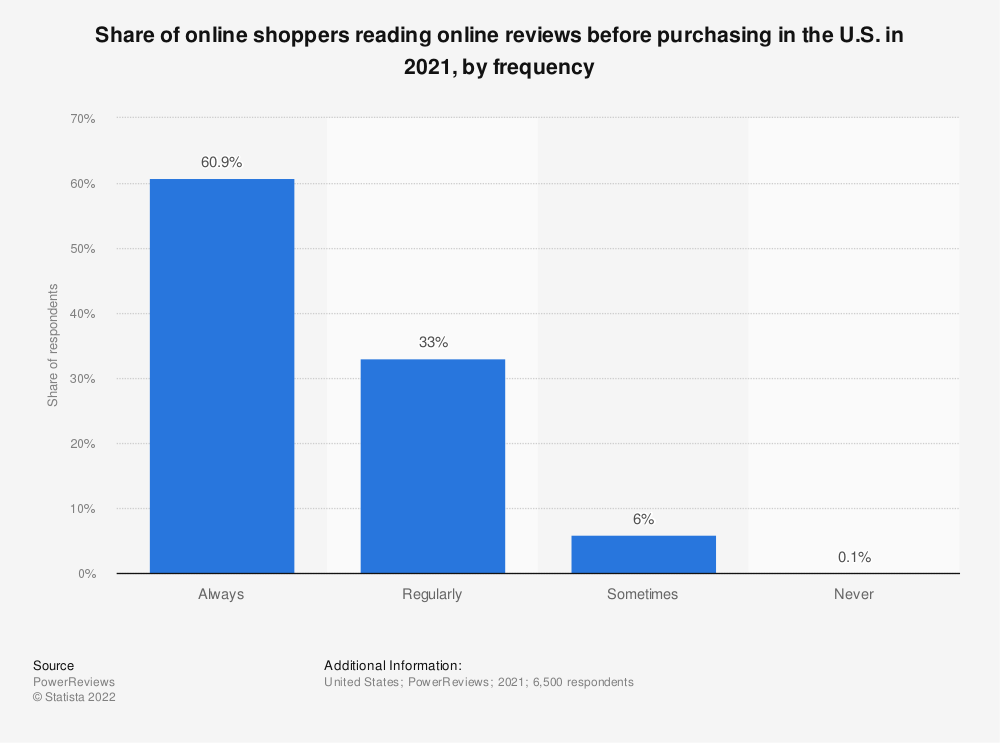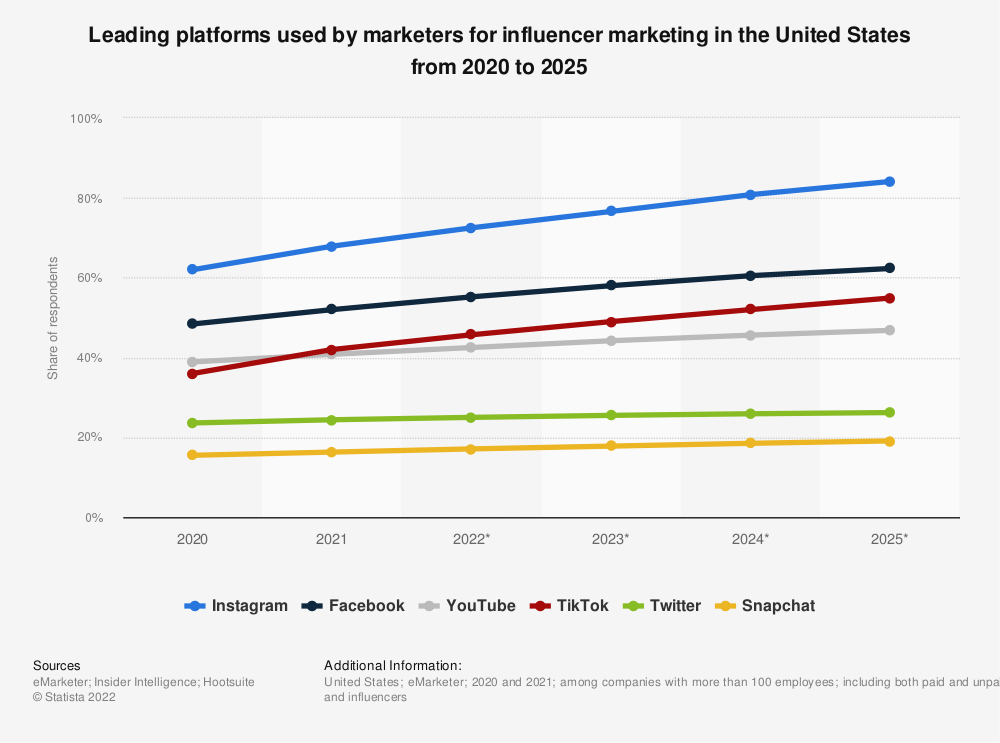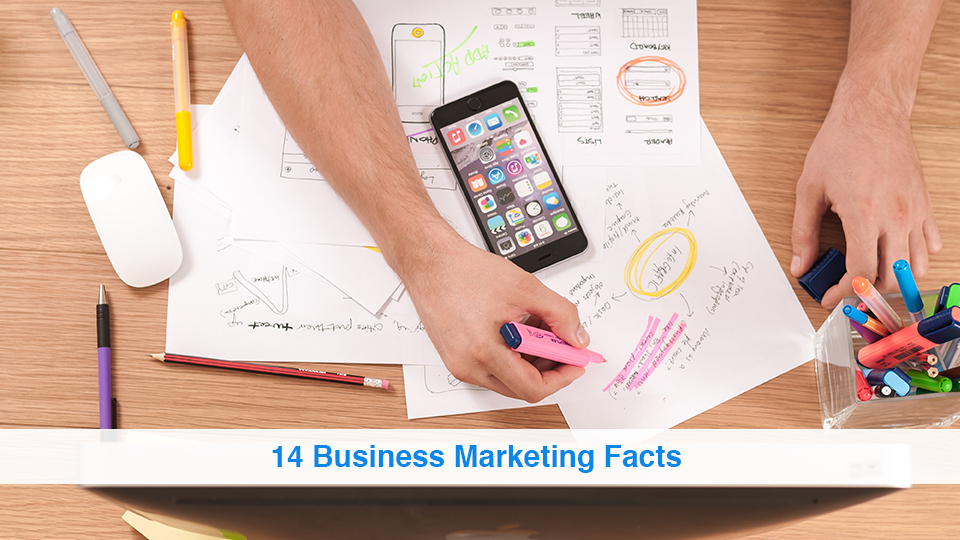Business marketing is essential for any business – big or small. Knowing the basics of marketing will give you a good foundation for your business, and allow you to create a plan that will help you reach your target market. It’s also important to keep up with the latest marketing trends, as they can change rapidly. Here are some key marketing facts that every business should know:
1. Content Rules Supreme
Businesses have always had an interest in marketing, but modern digital technologies have changed the way companies approach it. Today, content marketing is one of the most successful strategies for reaching out to consumers and capturing a larger audience.
According to recent research, 58 percent of businesses now consider content marketing to be a crucial component of their overall marketing strategy.
Furthermore, 78 percent of them have witnessed more leads being generated through content creation and promotion compared to traditional methods.
Interestingly, creating content on social media networks was also found to be highly beneficial for 87 percent of companies, proving it to be an effective way for brands to increase their visibility and engagement with their target audience.
Investing in quality content is therefore very important for all businesses that are looking to maximize their profits.
2. Social Media Is Everywhere
Having a presence on social media isn’t just a good idea; it’s practically mandatory for businesses looking to reach their target audiences these days.
According to Hootsuite’s Digital 2021 report, there are now over 3 billion active users on social media worldwide, an increase of 9% since 2020, and more than half (54%) say they use social media to research products or services they are interested in buying.
This means that if your business isn’t using social media as part of its long-term strategy, you could be missing out on valuable opportunities for growth and revenue generation.


3. Paid Advertising Pays Off
Digital advertising continues to be one of the biggest drivers behind online sales and conversions for businesses. A study conducted by WordStream found that businesses who invest in paid search advertising generate 2x more leads than those who rely solely on organic search traffic (SEO).
Additionally, companies who employ both organic and paid search strategies tend to get more website visitors (58% more) than those using only organic methods.
This highlights how combining different digital strategies can be beneficial in terms of reaching wider audiences while also boosting your ROI significantly at the same time.
When companies tailor their ads and content to different customer profiles, about 85% of those customers are more likely to be engaged by the ad and purchase the product or service.
Beyond this, segmenting customers can also help build brand loyalty and increase revenue by 35%. Customizing your business’ advertising messages can be an incredibly powerful tool when it comes to engaging new and existing customers, so consider all the potential benefits in order to maximize success.
4. Mobile Traffic Is On The Rise
A study by SimilarWeb revealed that nearly 60% of all website traffic now comes from mobile devices. This means that if you want your website to be successful, it needs to look great on both desktops and mobile devices.
This means investing in responsive design and ensuring that your website loads quickly and looks great on any device.
Content creators must also adjust their strategies to focus more on visual elements, like videos and images, in order to better engage with potential customers.
Having an effective mobile marketing strategy is no longer optional – it’s a necessity for modern businesses that wish to remain competitive in today’s digital world.
5. Video Is Powerful
Video has quickly become one of the most powerful marketing tools available today. According to a survey conducted by Wyzowl, 78% of people surveyed watched at least one video each week, while 55% watched videos every day.
And when it comes to conversions? Well according to Animoto’s 2018 State Of Video Marketing Survey Report , 92% of marketers said they believe that video is an important part of their marketing strategy, and 83% said they saw positive ROI from their video efforts.
The use of visual media has been proven to be far more effective at grabbing and retaining the attention of potential customers than traditional text-based approaches. Whereas only 22 percent of people remember what they’ve read, as high as 80 percent remember visuals they observe.
Furthermore, 78 percent of people believe that organizations presenting videos are concerned with building trust. If you want to take advantage of the benefits video content can offer your business, it’s essential that you understand how these videos should be managed and applied proactively within your current digital marketing plan.
6. Email Marketing Works
Email marketing is still one of the best tools for engaging with customers effectively, with 70% of customers saying they prefer email as their method of communication for brand updates.
Using personalized email campaigns can also boost open rates significantly; emails with personalized subject lines are 26% more likely to be opened than those without any personalization at all.
Statistics show that for every $1 spent on email campaigns, marketers can expect an average return of $38 in revenue across multiple industries. Moreover, 59% of professional marketers say email is their greatest source of return on investment.
Email marketing also provides businesses with the opportunity to stay connected with existing customers in a personalized way, as 77% of consumers prefer to receive marketing communications from brands via email.
Finally, it is estimated that the world’s total email users will reach 4 billion by 2024. This highlights the fact that there are many opportunities for businesses to market their products and services effectively through this channel over the coming years.
7. Traditional Advertising is Still Important
Despite the growth of digital media and marketing, traditional advertising methods remain an important part of the overall marketing mix. According to a recent report by Forrester Research, more than 80% of top-tier marketers still use traditional methods like print, radio, TV and outdoor advertising as part of their campaigns.
Even though many marketers are putting more emphasis on digital strategies such as social media marketing, search engine optimization (SEO), and content marketing, traditional media still plays an important role in reaching potential customers.
8. Word-of-mouth marketing
Often touted as the most effective strategy when it comes to business marketing. According to recent research, word-of-mouth marketing generates more than double the sales of traditional paid advertising with 88% of marketers viewing it as their most effective channel.
Furthermore, a staggering 92% of consumers trust recommendations from friends and family more than any other form of advertising, making it an invaluable tool even for smaller businesses who may not have a large budget for advertising.
Clearly understanding your audience, carefully crafting product messaging and leveraging influencers can be powerful tools in enabling word-of-mouth marketing and getting the best results from your campaigns.
9. User Generated Content
UGC is quickly becoming an important aspect of digital marketing. In fact, research shows that 90% of consumers trust UGC more than other forms of advertising, and the higher the authenticity, the greater the impact on consumer decisions.
Moreover, over half of consumers indicated they take to social media to post or search for UGC before making a purchase with intent. Even more impressive is how 71% of brands have seen a measurable increase in sales after incorporating UGC into their strategies.
It’s clear that UGC can make all the difference for businesses looking to expand their reach and drive engagement with their target audiences.

10. Unorthodox Techniques are Effective
Unorthodox business marketing techniques can often seem counter-intuitive at first glance. However, a variety of recent statistics demonstrate their effectiveness. For instance, over 70% of companies that use artificial intelligence in their marketing efforts have reported an improvement to their lead generation and closing rates.
The success rate of personalized advertising has similarly seen a massive increase, with 80% of consumers being more likely to make a purchase after being targeted with ads tailored to their interests and needs.
Finally, businesses who invest in content marketing stand to see an average return of three-to-one on every dollar spent on it. These facts prove that embracing unorthodox business marketing can provide excellent results.
11. Measurement Matters
When you’re running a business, it’s important to understand the fundamentals of marketing, as well as its impact on sales. Measurement matters and understanding the performance of your marketing efforts is key.
To enable you to better track those efforts and make adjustments where needed, here are some key business marketing facts: 80% of small businesses struggle to measure their return on investment in digital platforms; overall, businesses believe that 50% of their current marketing activities are working; 56% more positive outcomes were reported amongst companies that tracked data versus those who relied solely on gut feeling when making decisions related to their marketing efforts.
Understanding how your marketing practices affect your business provides you with greater insight into what’s working, what isn’t, and how you can adjust your strategy effectively.
12. Leverage Influencer Marketing
Many businesses are leveraging influencer marketing, as the most successful campaigns can be extremely cost-efficient. A great example of such come from the beauty sector, in which companies are reaching up to 90% ROI per campaign.
This success is due to the fact that influencers already have influence over a significant portion of their target audience, and through them brands can start seeing better engagement rates almost immediately. This allows businesses to spend less money upfront and still achieve their desired results.
Additionally, influencer marketing allows companies to diversify the channels they use for advertising, creating more opportunities in terms of return on investment.

13. Leverage Automation Tools
Business marketing is becoming increasingly complex, and automation tools are a great way for businesses to stay on top of the strategies needed for success. According to stats from 2019, almost 75 percent of companies use some kind of automated marketing solution.
Additionally, automated email campaigns have proven to be especially effective when utilized by businesses in that same year, with nearly double the open rate when compared with non-automated emails.
Automation tools help businesses tackle objectives like lead generation, follow-up emails, and insights into user behaviour to more easily reach their intended target market.
Investing in automation tools can be a valuable asset for improving business efficiency and staying on top of the ever-changing digital landscape.
14. Offline Events Can Be Used To Generate Leads
Offline events are a great way to attract potential customers, but it comes with risks. Knowing the facts is essential to success in offline marketing. Marketers should consider the amount of time it takes businesses to gain ROI from events; on average, three weeks.
Additionally, 44% of marketers say that measuring return on investment is their biggest challenge when organizing an offline event.
Finally, more than 46% of event visitors decide whether they make a purchase at the spot, making it important for businesses to be ready with product information and pricing. Prudent planning will help marketers leverage offline event marketing for better results.
9 Business Marketing Examples That Worked
1. Red Bull’s Sponsorship Strategy
Red Bull has long been known for its aggressive sponsorship strategy across many different sports, including motorsports, extreme sports, dance music events, and more. This effort has paid off with some impressive results — Red Bull has become one of the most recognizable brands in the world.
By sponsoring high-profile events and athletes, Red Bull has managed to boost its own visibility while also tapping into new markets that may not have otherwise been aware of the brand. This is an example of how businesses can leverage their marketing budgets to reach new audiences through strategic sponsorships.
2. Nike’s Social Media Campaigns
Nike is another example of a company that knows how to use social media effectively for business marketing purposes. The company produces consistently innovative campaigns across various platforms (Facebook, Twitter, Instagram, YouTube) that engage customers on a personal level while also highlighting their products in creative ways.
From celebrity endorsements to viral videos featuring everyday people doing extraordinary things — Nike knows how to tap into the power of social media to reach out to its target audience and keep them engaged with their brand message.
3. Apple’s Product Launch Events
Apple is well known for its product launch events — they are highly anticipated by tech enthusiasts around the world each year. But why do these events work so well? For starters, they create a sense of excitement around Apple’s products before they even hit the shelves — building hype that drives sales when the products are finally released.
Additionally, Apple uses these events as an opportunity to showcase their latest technological advancements in front of an eager audience who will then spread word about their newest offerings on social media channels and other outlets further driving up interest in those products before they are available for purchase.
4. McDonald’s Monopoly Campaign (1987-Present)
The McDonald’s Monopoly campaign is one of the most successful and longest running marketing campaigns in history. Launched in 1987, this promotion has seen over 3 billion game pieces collected by customers worldwide.
It combines the use of promotional items (game pieces) with an element of luck and reward that engages both casual and hardcore customers. In addition to raising brand awareness, this campaign has also been credited with boosting sales by up to 30%.
5. Starbucks Red Cup Campaign (2003-Present)
The Starbucks Red Cup campaign is another example of a successful business marketing strategy used by the coffee giant. This annual holiday promotion began in 2003 and has become a beloved tradition among Starbucks fans around the world.
By utilizing creative visuals of red cups adorned with seasonal designs, Starbucks was able to leverage their iconic branding to create an emotional connection with their customers and encourage them to purchase their products year after year. As a result, this campaign continues to be one of the most popular holiday promotions every year.
6. Ford Mustang Racing Team (1964-Present)
For over 50 years, Ford has been using motorsport racing as part of its overall marketing strategy for the iconic Mustang model. The Mustang Racing Team has seen great success in both drag racing and stock car racing competitions throughout its history, winning numerous championships along the way.
Through these races, Ford was able to demonstrate the performance capabilities of their vehicles while also generating buzz about their brand around the world.
7. Coca-Cola’s “Share a Coke” Campaign
Coca-Cola launched its “Share a Coke” campaign in 2014 with the intention of connecting with millennials on a personal level by offering personalized bottles with people’s names on them.
The campaign was extremely successful; not only did it result in an increase in sales but also created a strong emotional connection between Coca-Cola and its customers that still exists today.
This connection helped differentiate Coca-Cola from its competitors while also giving people something special they could share with friends or family members, creating lasting memories along the way.
8. Burger King’s Social Media Campaign
Burger King made headlines in April 2019 when they launched their “Burn That Ad” campaign on social media. The campaign encouraged customers to post photos of themselves burning competitors’ ads, such as those from McDonald’s and Wendy’s.
Customers who posted the images were then rewarded with free Whoppers. This unique approach not only created buzz around Burger King products but also drove consumers to their restaurants in droves.
9 Amazon Prime Day
In 2015, Amazon introduced Prime Day, a 24-hour event that offers exclusive deals and discounts on millions of items from across Amazon’s marketplace. The event quickly became one of the most anticipated shopping days of the year, and it remains so today, even during 2020 when many people are staying home due to COVID-19 pandemic restrictions.
Although some retailers have tried (unsuccessfully) to copy this strategy, Amazon remains the king of Prime Day; it continues to set records for sales each year and is now a staple event for many shoppers around the globe.
Conclusion
Marketing your business doesn’t have to be complicated. In fact, using some simple marketing strategies can actually help you reach a larger audience and generate more sales. The key is to know your target market and craft a message that resonates with them. By understanding these 14 business marketing facts and looking at 9 examples of businesses that used effective marketing techniques, you should have all the inspiration you need to get started on crafting your own winning marketing strategy.
References
https://mailchimp.com/en-gb/marketing-glossary/content-marketing/
https://blog.hubspot.com/marketing/traditional-marketing-vs-digital-marketing


